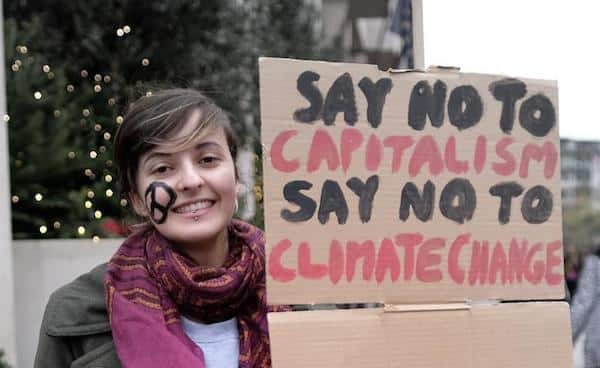Tens of thousands of people are expected to be in central London for four days starting Friday to protest the government’s lack of action on the climate crisis. Extinction Rebellion (XR) has called it The Big One, and the idea is to surround parliament to demand ‘systemic change’. Any organisation worth their salt will be there—some 200 or more—along with protesters from across the country. From Greenpeace, Friends of the Earth and other NGOs, to unions like PCS and Unite, to movement organisations CND and Stop the War Coalition, direct action groups Don’t Pay and #StopRosebank—and Just Stop Oil, of course—and rank-and-file campaigns like NHS Workers Say NO! Here comes everyone, as the publicity says.
At the start of this year, XR declared a move away from direct action that disrupts the public, instead concentrating on ‘disrupting government’ and where power lies: parliament, fossil fuel corporations, banks and so on. They pledged to focus efforts on mobilising numbers in mass demonstrations, reaching out to movements and organisations and connecting the climate crisis to the cost-of-living crisis and the political system. They have supported picket lines and demonstrations. All of this is a good move.
In concrete terms, disrupting the government’s agenda of business-as-usual means forcing them to reverse decisions like developing the Rosebank oil field—the largest undeveloped oil field in the North Sea—for example, forcing them to tax the profits of oil companies and halt further exploration, forcing them to institute Green New Deal policies. These would be a start, and they require a movement with the social weight to push for them.
It was barely a month ago that the Intergovernmental Panel on Climate Change (IPCC) finished its 8,000-page sixth assessment report. It contains everything we know about the depth and scale of the crisis in comprehensive detail. A few weeks prior to its publication, Big Oil—generally understood as the world’s 5 or 6 biggest oil companies—posted profits of over $200bn. These were the highest ever profits made in the history of Big Oil.
Meanwhile, emissions continue to rise. Since the IPCC published its first report in 1990, report after report has come out, warning of the consequences of the 200-year trend of rising greenhouse gas emissions. Not humanity as a whole, but specifically those in power, have failed to do anything about it. We are beyond raising awareness about the crisis, beyond persuading the capitalist class to change course. If the political elites aren’t moving fast enough, ordinary people in the labour movement and the social movements have to take things into their own hands. Now it comes down to strategy.
What will actually challenge the foundations of the capitalist economy, and bring forth the ‘root-and-branch transformation’ of society we so desperately need? One of the things we have to challenge is the idea that working people have to make sacrifices in order to avert catastrophe, and focus on how addressing the crisis has to go hand in hand with improving people’s lives. Immediately, socialist policies such as nationalisation of power generation and distribution, and nationalisation of transport, are key. This requires massive investment in planning and infrastructure.
But in order to ensure that industry is not directed in the interests of profit, we need massive pressure from below. The current strike wave is an opening. While workers are not striking for the climate as such, they are striking for pay, conditions, pensions and welfare in general—the very things that would be guaranteed in a society that also cared for the planet. If the strike wave continues, if we start to win victories, we make more demands, including demands on climate action.
It’s quite clear that the strikes themselves aren’t just about pay. Demands for renationalisation of rail and the post office, funding for the NHS, valuing education and so on—all of these demands can be integrated within the climate movement. This would mean that the transition away from polluting industries, for example, has workers at its core. Retraining and redeployment for workers in these industries would be foundational. The strategy for the climate movement has to involve uniting with striking workers, those who are using their power to disrupt profits and refusing to accept the status quo.
If XR continues connecting up with wider social movements, and the rising militancy in the unions continues, we have a chance. Mass action has worked to bring change in the past, we need it now on the biggest scale and on all fronts more than ever.

